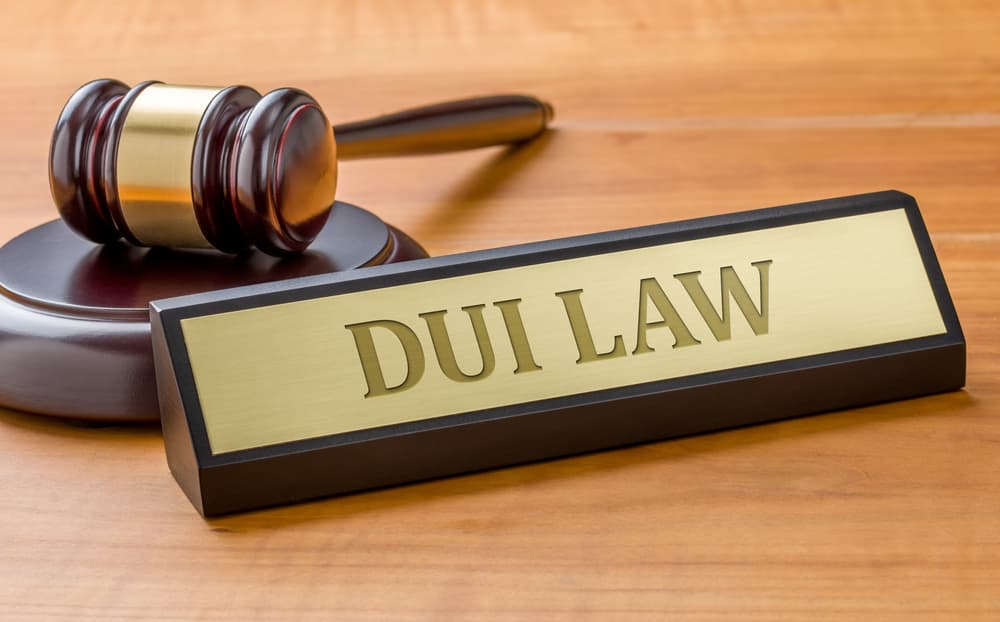Anyone facing DUI or DWI charges must understand the variances between DUI (Driving Under the Influence) and DWI (Driving While Intoxicated or Impaired). While these legal terms are often interchangeable, they can carry distinct meanings and penalties depending on the jurisdiction.
If you are ever pulled over or charged with either, it is essential to know your rights and consult a criminal defense lawyer in Carteret County as soon as possible. Each state holds its specific regulations regarding DUI and DWI.
Schedule Your Free Consultation
Introduction to DUI and DWI
Driving under the influence of drugs or alcohol is a serious offense with potentially severe consequences. The laws and terminology surrounding these offenses can vary significantly from state to state, making it essential to understand the specific regulations in your area. While DUI and DWI both pertain to operating a vehicle while impaired, the distinctions between them can be significant.
What is DUI?

DUI generally means Driving Under the Influence. It is a broad term that encompasses driving a vehicle while your ability to do so is impaired by alcohol or drugs. This impairment does not necessarily mean being heavily intoxicated. Even a slight reduction in your capacity to drive safely can lead to a DUI charge.
Legal Definition of DUI
The legal definition of DUI varies by state. Most jurisdictions define DUI as operating a motor vehicle with a blood alcohol content (BAC) at or above a certain level, typically 0.08 percent. However, some states may have lower thresholds, especially for commercial drivers or drivers under 21. This level is usually set at 0.04 percent for someone holding a CDL.
Elements of a DUI Offense
To prove a DUI charge, the prosecution must typically demonstrate the following elements:
- The defendant was operating a vehicle.
- The defendant was under the influence of alcohol or drugs.
- The defendant's ability to drive safely was impaired.
Common DUI Scenarios
Several scenarios can lead to a DUI charge, including.
- Driving after consuming alcohol at a bar or restaurant is one scenario that can result in a DUI charge.
- Driving after taking prescription medications that cause impairment can also result in a DUI charge.
- Driving after using illegal drugs.
What is DWI?

DWI generally means Driving While Intoxicated or Driving While Impaired. Like DUI, DWI refers to operating a vehicle while affected by drugs or alcohol. However, in some jurisdictions, DWI may imply a higher level of impairment than DUI.
Legal Definition of DWI
The legal definition of DWI also varies by state. In some states, DWI is synonymous with DUI. In others, DWI may indicate a higher BAC level or more severe impairment. Some states also have separate charges for driving under the influence of drugs.
For instance, in Arkansas, a DWI happens if your BAC is at least 0.08, while a DUI is charged for driving under the influence of drugs or alcohol, even if the BAC is under 0.08.
Elements of a DWI Offense
To prove a DWI charge, the prosecution typically needs to show:
- The defendant was operating a vehicle.
- The defendant was intoxicated or impaired by alcohol or drugs.
- The defendant's intoxication or impairment significantly affected their ability to drive safely.
Common DWI Scenarios
Common scenarios leading to a DWI charge are similar to those for DUI but may involve more pronounced intoxication. These can include:
- Driving after consuming excessive amounts of alcohol is one example.
- Another example is when someone is driving while seriously impaired by drugs.
Level of Impairment
DWI, as opposed to DUI, denotes a higher degree of impairment in some states. A DWI charge might call for a higher blood alcohol content or more obvious evidence of intoxication, whereas a DUI charge might be predicated on a lower blood alcohol content.
Legal Thresholds
The legal BAC thresholds for DWI and DUI may be different. Some states have higher DWI thresholds and lower DUI thresholds. For example, a BAC of 0.08 percent can lead to a DUI, while a BAC of 0.15 percent or higher can lead to a DWI.
Penalties
The penalties for DWI and DUI can differ as well. Convictions for DWI may result in harsher punishments than those for DUI, such as lengthier license suspensions, fines, and jail time.
Blood Alcohol Content (BAC)
The blood alcohol content, or BAC, measures the amount of alcohol in a person's blood. It plays a significant role in determining DUI and DWI charges.
How BAC is Measured
A breathalyzer, blood, or urine test commonly measures blood alcohol content. The most widely used tool by law enforcement during traffic stops is a breathalyzer.
Legal BAC Limits
In most states, the legal blood alcohol content (BAC) limit is 0.08 percent. However, as mentioned, some drivers are subject to lower limits - commercial drivers (0.04 percent) and teens (0.00 percent to 0.02 percent).
Factors Affecting BAC
BAC can be influenced by several factors, such as:
- Weight
- Gender
- Metabolism
- Amount of alcohol consumed
- Time elapsed since alcohol consumption
Penalties for DUI/DWI

The penalties for DUI and DWI convictions can vary significantly depending on the jurisdiction, the offender's prior record, and the specific circumstances of the offense.
First-Time Offense Penalties
Penalties for a first-time DUI/DWI offense may include:
- Fines
- License suspension
- Mandatory alcohol education programs
- Probation
Repeat Offense Penalties
Penalties for repeat DUI/DWI offenses are typically much more severe and can include:
- Longer jail sentences
- Higher fines
- Extended license suspension or revocation
- Vehicle impoundment
- Adding an ignition interlock device to your vehicle
Factors that Worsen a Charge
Certain factors can increase the severity of DUI/DWI penalties, such as:
- High BAC level
- Having a minor in the vehicle
- Causing an accident with injuries or fatalities
These considerations are called aggravating factors.
Defenses Against DUI/DWI Charges
Several defenses may be available against DUI/DWI charges, depending on the circumstances. A skilled criminal defense lawyer will investigate to determine the best strategy for your circumstances.
Challenging the BAC Test
You can challenge the accuracy or validity of the BAC test results.
Illegal Stop or Arrest
The charges may be dismissed if law enforcement does not have probable cause to stop or arrest you.
Medical Conditions
Certain medical conditions can mimic the symptoms of intoxication and may be used as a defense.
What to Do If You Are Pulled Over for DUI/DWI
If you are pulled over and suspected of DUI/DWI, it is essential to remain calm and respectful.
Your Rights
You have the right to remain silent and to have an attorney. It is advisable to exercise these rights.
Field Sobriety Tests
Field sobriety tests are voluntary. You may refuse to take them.
Chemical Tests
Chemical tests (breath, blood, or urine) may be required by law. Refusal may result in additional penalties.
Contact a Criminal Defense Lawyer Now
Have you been charged with driving while impaired or driving under the influence? If so, learn more about your rights and responsibilities. Consult with a seasoned DUI/DWI defense attorney today.